Artist: John Butler Yeats RHA (1839-1922) Title: Self Portrait (1920) Signature: signed and dated 1920 Medium: pencil drawing Size: 46½ x 37½cm (18.3 x 14.8in) Framed Size: 75.8 x 66.2cm (29.8 x 26.1in) Provenance: Yeats Family Collection; Private Collection a#morebtn { color: #de1d01; } a#morebtn:hover { cursor: pointer;} In the last decade of his life, John Butler Yeats returned repeatedly to the theme of self-portraiture. Many of these he sketched in pencil (probably a black chalk/graphite pencil), but there are also several in oil on canvas, with the artist adopting different poses and allowing himself time to exp... Read more John Butler Yeats Lot 2 - 'Self Portrait (1920)' Estimate: €3,000 - €5,000 In the last decade of his life, John Butler Yeats returned repeatedly to the theme of self-portraiture. Many of these he sketched in pencil (probably a black chalk/graphite pencil), but there are also several in oil on canvas, with the artist adopting different poses and allowing himself time to experiment with backgrounds and colour. The theme of self-portrait had been suggested, and indeed commissioned, by lawyer and art patron John Quinn in 1911, as a means whereby the relatively impoverished Yeats, who had arrived in New York four years earlier, could support himself financially. The father of artist Jack B. Yeats, poet W. B. Yeats, and also of Elizabeth and Susan Yeats, who ran the Cuala Press in Dublin, John Butler Yeats was born in 1839 in Co. Down. He initially studied law in Dublin, but decided to up sticks and move with his wife and children to London, to study art. Over the following years, Yeats moved back and forth between London and Dublin, struggling to establish himself as a portrait painter. The American lawyer and patron John Quinn helped him settle in Dublin, and in 1901 he had a joint exhibition with Nathaniel Hone The following year, Hugh Lane commissioned Yeats to paint a series of portraits of people influential in the Irish literary revival. Dating from 1920, this self-portrait was done when John Yeats was advanced in years, and beginning to suffer ill-health; his son William Butler had arrived in New York in January of that year, to begin a tour of north America. While W. B. went on to Toronto and Quebec, his wife George remained in New York, where she visited her father-in-law daily. When John Butler Yeats died two years later, in his boarding house in New York City, an unfinished self-portrait, in oil on canvas, was on his studio easel (it is now in the Niland Collection in Sligo). This self-portrait in pencil (probably conte pencil rather than graphite) is a preparatory drawing for the unfinished painting, and reveals how Yeats was moving towards a more Expressionist-or Post-Impressionist-approach in the last years of his life. A comparable self-portrait, also in soft black pencil, is in the National Portrait Gallery in London. Peter Murray, March 2022
Artist: John Butler Yeats RHA (1839-1922) Title: Self Portrait (1920) Signature: signed and dated 1920 Medium: pencil drawing Size: 46½ x 37½cm (18.3 x 14.8in) Framed Size: 75.8 x 66.2cm (29.8 x 26.1in) Provenance: Yeats Family Collection; Private Collection a#morebtn { color: #de1d01; } a#morebtn:hover { cursor: pointer;} In the last decade of his life, John Butler Yeats returned repeatedly to the theme of self-portraiture. Many of these he sketched in pencil (probably a black chalk/graphite pencil), but there are also several in oil on canvas, with the artist adopting different poses and allowing himself time to exp... Read more John Butler Yeats Lot 2 - 'Self Portrait (1920)' Estimate: €3,000 - €5,000 In the last decade of his life, John Butler Yeats returned repeatedly to the theme of self-portraiture. Many of these he sketched in pencil (probably a black chalk/graphite pencil), but there are also several in oil on canvas, with the artist adopting different poses and allowing himself time to experiment with backgrounds and colour. The theme of self-portrait had been suggested, and indeed commissioned, by lawyer and art patron John Quinn in 1911, as a means whereby the relatively impoverished Yeats, who had arrived in New York four years earlier, could support himself financially. The father of artist Jack B. Yeats, poet W. B. Yeats, and also of Elizabeth and Susan Yeats, who ran the Cuala Press in Dublin, John Butler Yeats was born in 1839 in Co. Down. He initially studied law in Dublin, but decided to up sticks and move with his wife and children to London, to study art. Over the following years, Yeats moved back and forth between London and Dublin, struggling to establish himself as a portrait painter. The American lawyer and patron John Quinn helped him settle in Dublin, and in 1901 he had a joint exhibition with Nathaniel Hone The following year, Hugh Lane commissioned Yeats to paint a series of portraits of people influential in the Irish literary revival. Dating from 1920, this self-portrait was done when John Yeats was advanced in years, and beginning to suffer ill-health; his son William Butler had arrived in New York in January of that year, to begin a tour of north America. While W. B. went on to Toronto and Quebec, his wife George remained in New York, where she visited her father-in-law daily. When John Butler Yeats died two years later, in his boarding house in New York City, an unfinished self-portrait, in oil on canvas, was on his studio easel (it is now in the Niland Collection in Sligo). This self-portrait in pencil (probably conte pencil rather than graphite) is a preparatory drawing for the unfinished painting, and reveals how Yeats was moving towards a more Expressionist-or Post-Impressionist-approach in the last years of his life. A comparable self-portrait, also in soft black pencil, is in the National Portrait Gallery in London. Peter Murray, March 2022
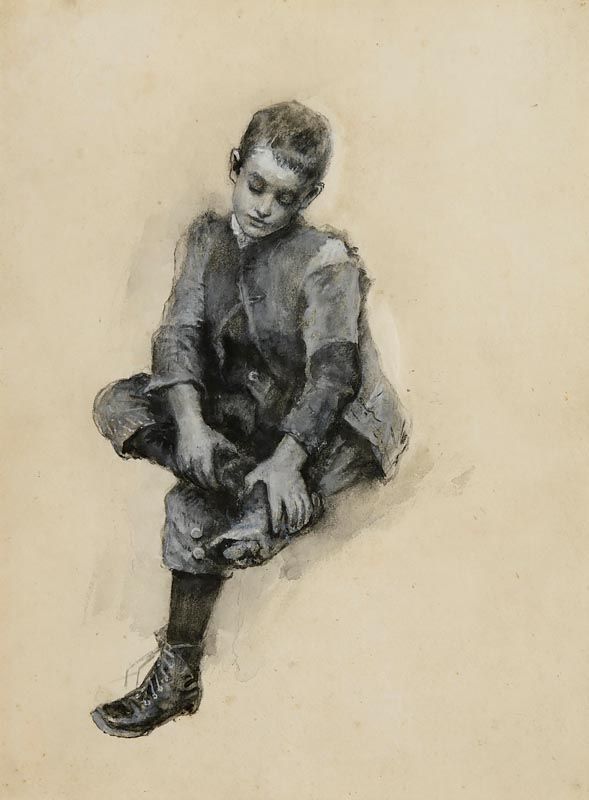
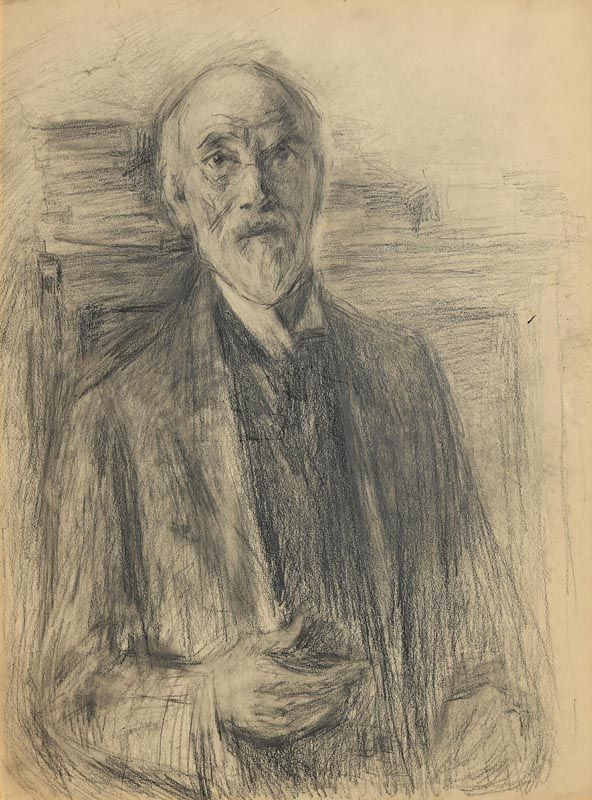
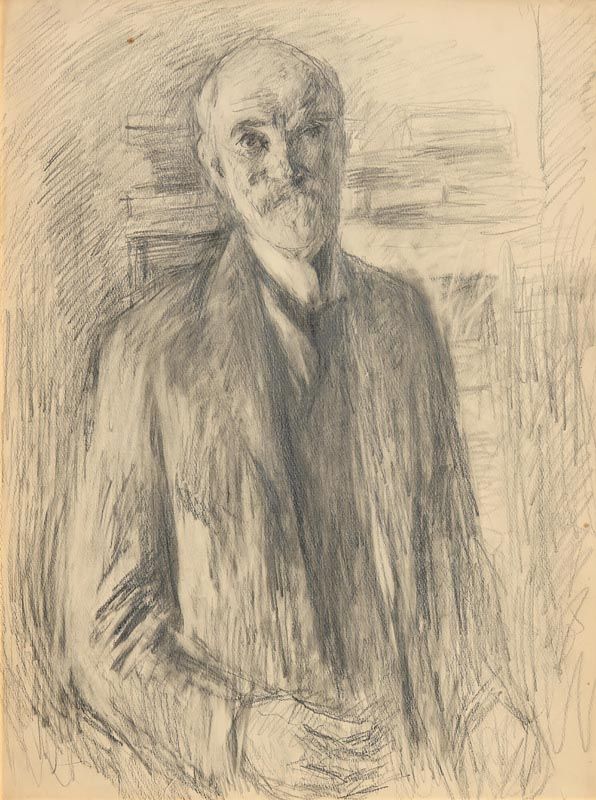
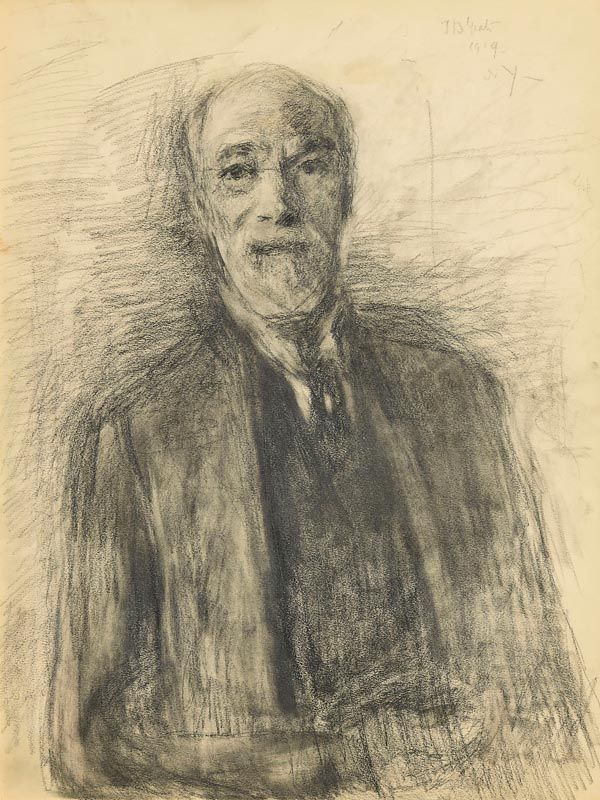
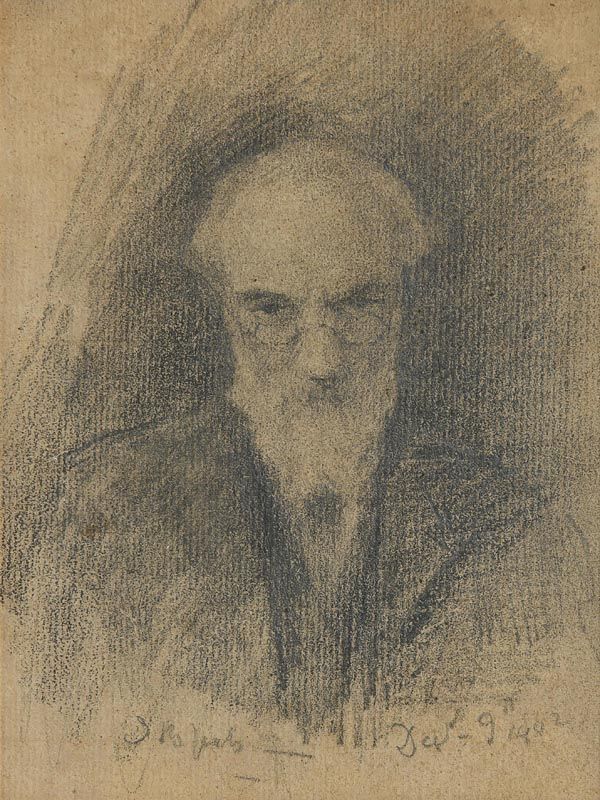
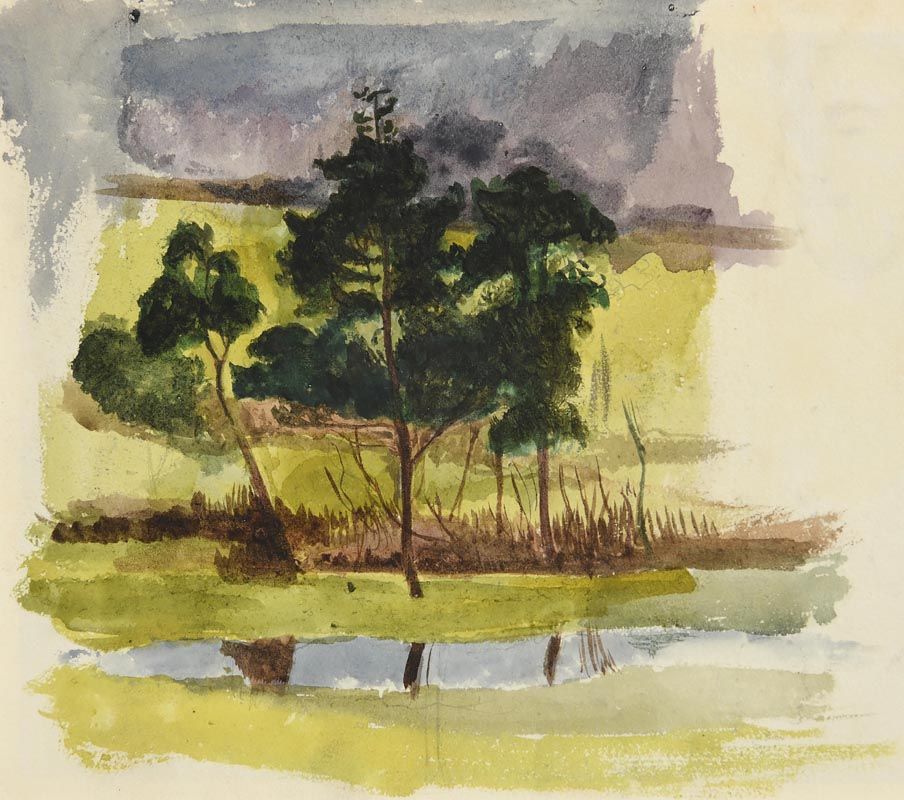


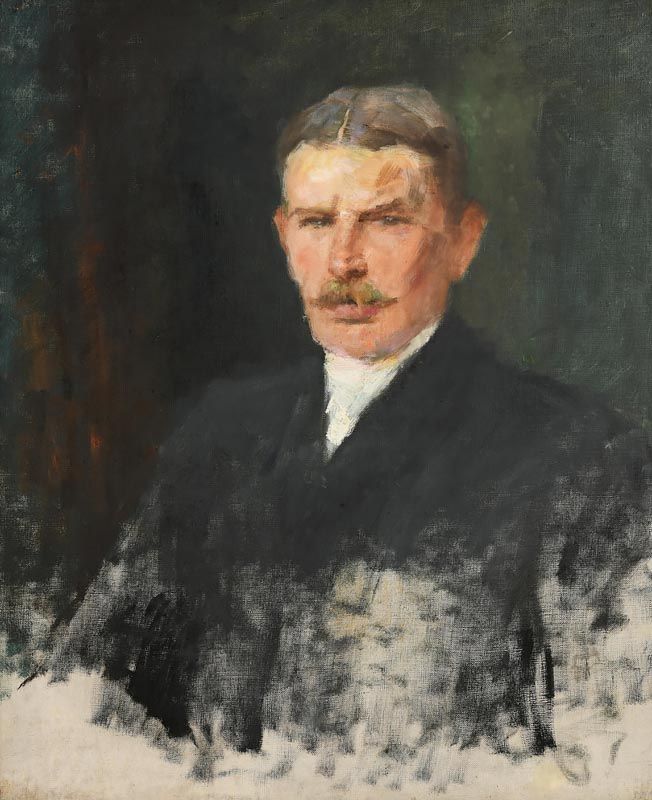
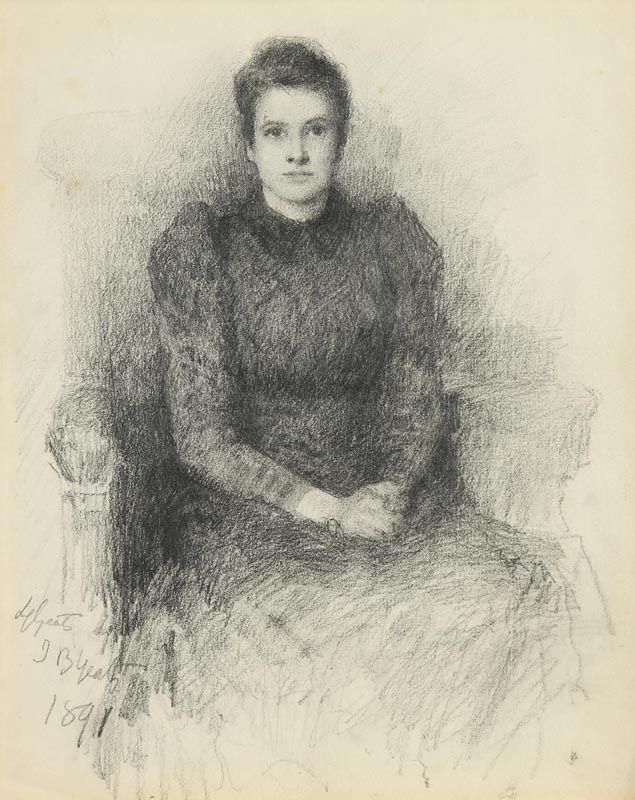
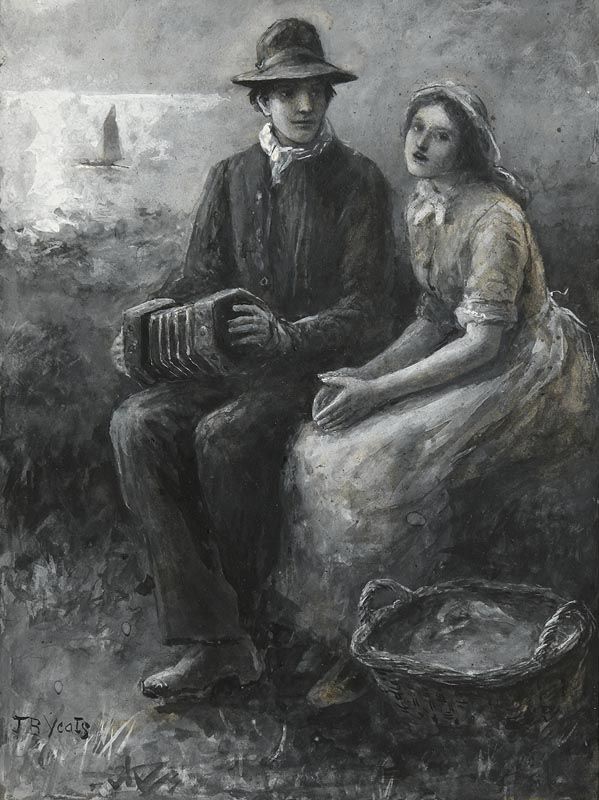
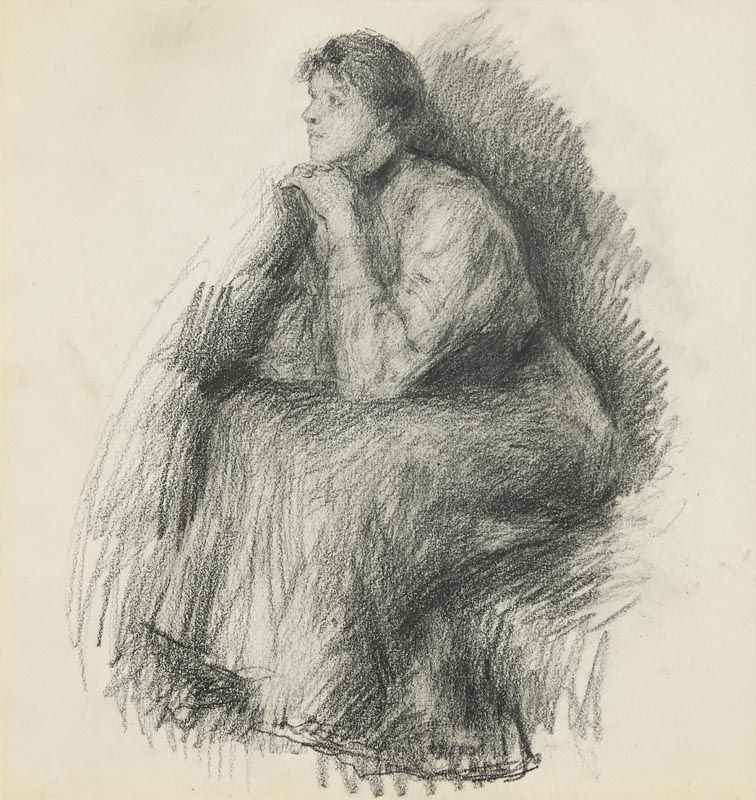


Try LotSearch and its premium features for 7 days - without any costs!
Be notified automatically about new items in upcoming auctions.
Create an alert